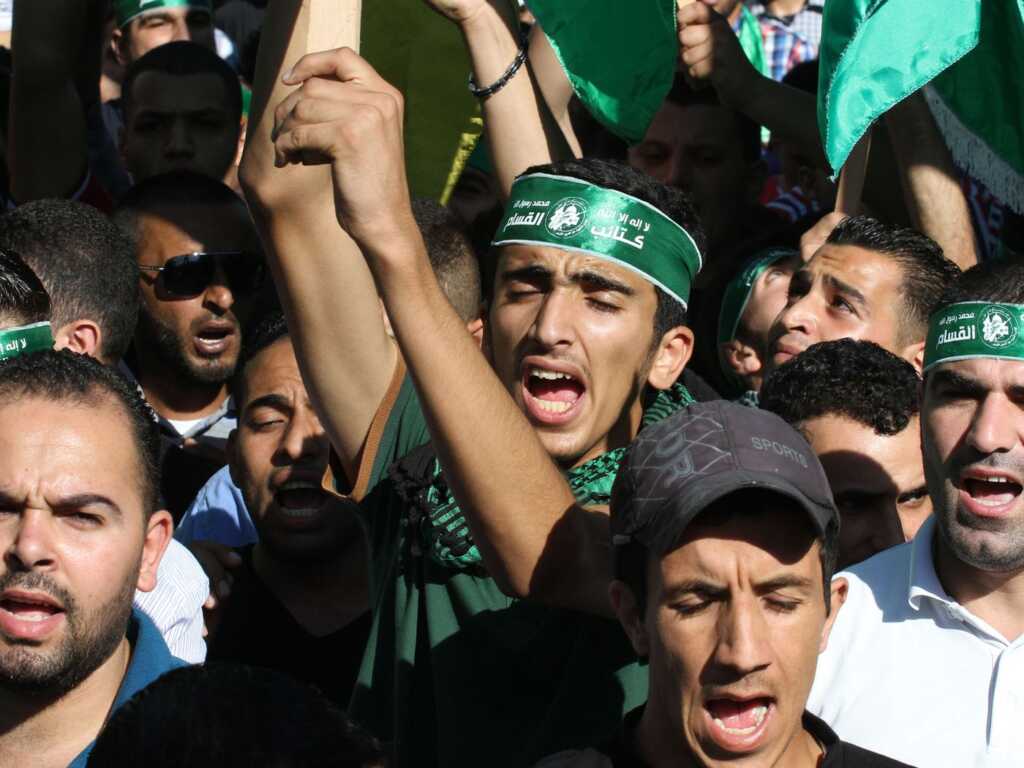One aspect of the situation with Hamas that wasn’t really discussed very much in the last article is its sense of victimhood. Victimhood is a state of mind, an ongoing internal experience that exists independent of whether or not a person has actually been the victim of an impactful, even traumatic event. A real victim has been acted upon by an event in the external world, an event that actually does happen. Or of multiple events. But these events are occurrences that people in the external world can point to and independently verify. Whereas victimhood is an experience within a person or a group of people that can be totally fabricated and that can have no basis in reality. It is a tactic that people use to pull themselves out of their experiential vacuum, out of their experiential numbness.
The Palestinian people could have had peace a long time ago, a peace in which they would have had their own separate state. There have been several incarnations of a peace agreement, at least with West Bank Palestinians, and in at least one of them, they could have even had East Jerusalem as their capital. Yet, every time that a peace agreement has been within reach, the Palestinian leaders have found an excuse to back out. Primarily, it has been that if the leader made the peace, he would have been assassinated like Anwar Sadat by more hawkish members of his group.
What happens is that the Israelis, although disappointed, go on with their lives, continue to develop as a vibrant strong independent society. And the Palestinians continue to live in limbo. Of course, Hamas doesn’t even bother with peace treaties. The markers for their relationship with Israel are not failed peace treaties but failed wars. Which, amidst the desolation and the rubble that result, leave them in an even greater experiential vacuum than that experienced by the West Bank Palestinians.
Which means an even greater sense of victimhood. The victimhood is a kind of rewriting the narrative of history in such a way as to give meaning to all that Hamas has done in terms of the conflicts that it has generated. Each conflict pushes the members deeper into numbness and more desperate to give meaning to their lives by creating imprints on their fields of experience through the fulfillment of their impossible territorial dreams. Each conflict is an explosive tension pocket meant to blow them out of their numbness. But when it fails to achieve its goals, the Gazans resort to the friction created by the internalized elaborated conflict that results in their sense of victimhood. To fight the numbness, the Gazans carry around their enemy inside of them all the time. This is done to make sure that they have the means to feel alive as they continue to live in their numbing limbo political state.
One aspect of this sense of victimhood that has not been discussed is that it carries with it a strong sense of the rightness of their moral position. In spite of the downtroddenness of their actual living conditions, the Gazans under Hamas can recur to a transcendent sense of moral purpose to balance off the ongoing abrasiveness from the anger they experience in their victimhood. It is not the Gazans who have done anything wrong in the wars they have generated, wars that have brought so much destruction to themselves. According to the Gazans, in truth, it is the Israelis that have generated these wars with their supposed subjugation of the Palestinian people. The Israelis have simply pushed the Gazans to rise up from their supposedly untenable living situation to make the living situation bearable through what they, the Gazans, perceive to be a just reordering of society. The abrasiveness is there as a prod to propel them out of the experiential vacuum in which they live and the immoral situation in which they have been supposedly placed as a result of the Israelis. To that extent, the abrasiveness is a necessary evil in their living situation, a necessary evil that will lead them to a higher good.
All of this simply shows how much delusional thinking Hamas and the Gazans have incorporated into their world view, and how, if they continue to maintain this thinking on an ongoing basis, they will not only continue in a state of victimhood, but they will continue in behavior that can only be described as hopelessly self-destructive. Until, or should I say, only if Hamas truly accepts the reality of the State of Israel, is there any real hope of Hamas and the Gazans pulling out not only of the physical rubble but also of the psychological rubble in which they presently live.
And, of course, as long as Hamas and the Gazans continue to live in a state of victimhood, with all the attendant negative consequences that result, Israel will pcontinue to live with the fallout of Hamas behavior: perpetually being on the lookout for Hamas penetration of their otherwise normal lives from tunnels and missiles and all the other means Hamas uses that create a certain amount of havoc in Israeli lives. Yes, the Israelis continue to build a vibrant nation. But Hamas’s imagined victimhood has paradoxically led to a certain amount of real victimhood in the lives of innocent Israelis whose lives have been damaged by Hamas incursions and who simply just want to live in peace with their neighbors.

























